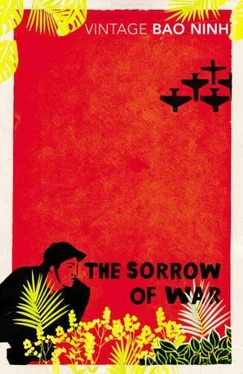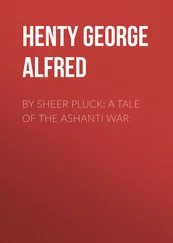Kien frowned, then walked away. ‘Be sure of yourself first, what a joke!’ Kien said to himself. He recalled Oanh’s death a month earlier, the morning his regiment attacked the Police Headquarters at Buon Me Thuot.
That day the southern government’s police force had defended themselves as staunchly as any regular soldiers in the southern armed forces. It took the NVA regulars more than an hour to fight their way into the main police building. They’d been ordered to kill all men wearing white shirts and release those wearing yellow. No one knew who’d given the order but it went down the ranks by word of mouth. The attackers fired non-stop yet the white shirts continued to pour out like bees.
In the leading force, Kien and Oanh had just taken out the machine-gunners who’d been firing on them from the third floor. They had rushed up the hallway throwing a grenade into each room they came to. The defenders were using pistols, machine-guns and grenades to fight back and refused to surrender.
Kien and Oanh got to a room at the end of the third-floor corridor. It had a plush brown door lined with leather. The door was flung open before they got to it and three figures like white blurs flashed past them and rushed upstairs to the fourth floor.
‘They’re women! Don’t shoot,’ shouted Oanh.
But Kien’s AK had already sounded. Kien stopped shooting and shouted, ‘Surrender and you live. Resist, you’re dead!’
But he had already shot the three uniformed women and they fell back down the stairs onto the green corridor’s green carpet. Dark red blood spurted from two of them onto the carpet, while the third, just a girl really, slumped at the base of the stairs against a wall.
Kien and Oanh ran over to her. The air was full of gunsmoke and the smell of blood, yet the young girl’s perfume seemed stronger. She was cradling her face in her hands, her curled hair almost covering her hands. Between her hands they could see smeared lipstick and her lips twisted in pain. The whole building was in chaos and all around them were grenade explosions, gunshots, screams and footsteps.
Kien moved past the girl, heading upstairs, and Oanh said to the girl, ‘Go down into the yard with your hands up. No one will shoot you.’ Oanh picked up his knapsack of grenades and slung them over his shoulder as though they were avocados, and started after Kien.
Kien didn’t hear the shots that killed Oanh.
With all the machine-gun fire and other noises he didn’t even hear Oanh’s cry as the girl shot him. He didn’t realise that he had barely escaped death himself because her Walther PK 38 had run out of bullets.
She had shot Oanh in the back several times and Oanh was falling as Kien, completely unaware of her shots, turned to lean against the wall and wait for him. He was about to tell Oanh not to rush out onto the fourth floor, but to use a grenade to threaten them first.
As Oanh fell the girl lifted the pistol in both hands, bending slightly forward, and aimed at Kien. He was less than ten metres from her and knew he would be hit. She pulled the trigger, but nothing happened.
Kien shot her then, coming down the stairs past Oanh, shooting repeatedly, until he stood face to face and shot her again, in revenge. But although she had been blasted back by five rounds she still leaned on her arm on the floor, raising her head, as if she had decided to sit up. Kien fired the remainder of the magazine into her and the tiles under the girl’s white uniform reddened with blood. Kien squatted down near the four bodies, shaking and retching. In ten long years of fighting, since his first day at the front, he had never felt as bad.
That day at the airport he had recalled Oanh’s fate as he walked around reviling the armoured-car commander’s advice to treat the dead sympathetically. Oanh had been sympathetic, and look what had happened to him.
Kien began drinking. There was plenty of free booze at the airport. He wandered around watching the soldiers looting, and joined in the drinking and destruction. The entertainment seemed riotous, but it wasn’t the least bit amusing. They turned over furniture, smashed and ripped fittings and scattered them everywhere. Glasses, pots, cups, wine bottles, were all broken or shot up. They used machine-guns to shoot out the chandeliers and the ceiling lights. Everyone drank heavily and they all seemed to be drunk, half-laughing, half-crying. Some were yelling like madmen.
Peace had rushed in brutally, leaving them dazed and staggering in its wake. They were more amazed than happy with the peace.
Kien sat in the canteen of the Air France terminal, his legs up on a table, quietly drinking. One after another he downed the cups of brandy, the way a barbarian would, as if to insult life. Many of those around him had passed out, but he just kept on drinking.
A strange and horrible night.
At times the noise of machine-guns and the sight of the red, blue and violet signal flares fired into the air at random created a surreal atmosphere. It was like an apocalypse, then an earthquake. Kien shuddered, sensing the end of an era.
Some said they had been fighting for thirty years, if you included the Japanese and the French. He had been fighting for eleven years. War had been their whole world. So many lives, so many fates. The end of the fighting was like the deflation of an entire landscape, with fields, mountains and rivers collapsing in on themselves.
As dawn approached it grew noisier, then the racket died down.
Kien felt the sharp contrast between the loud, chaotic night and the peaceful morning. Suddenly, he felt terribly alone; he sensed he would be lonely forever.
In later years, when he heard stories of V-Day or watched the scenes of the Fall of Saigon on film, with cheering, flags, flowers, triumphant soldiers and joyful people, his heart would ache with sadness and envy. He and his mates had not felt that soaring, brilliant happiness he saw on film. True, in the days following 30 April he had experienced unforgettable joys after the victory. But on the night itself they’d had that suffocating feeling at the airport. And why not? They’d just stepped out of their trenches.
Yes, he had drunk his way through the night sitting in the Air France lounge. It wasn’t until morning that his brain started reeling. He began to have nightmares about the naked girl they’d dressed up. The floor beneath him felt as though it was heaving, a glass wall before him seemed to go up in smoke. The apparition of a naked girl appeared before him, her chest white, her hair messy, her dark eyes swarming with ants, and on her lips a terrible twisted smile. He looked steadily at her, feeling pity. This was a human being who had been killed and humiliated, someone even he had looked down on. Those who had died and those who lived on shared a common fate in this war.
He reached out unsteadily and tried to embrace the ghostly shadow of the girl. In his drunkenness he was blubbering, generating deep pity for her poor lost soul as he blethered on with words of consolation for her.
When he spoke of these events in later life others found it inconceivable he would waste his time becoming nostalgic over a girl at Tan Son Nhat airport who had not only been a corpse, but the corpse of someone Kien had never met! Yet the woman had, strangely, left a tragic and indelible imprint on his mind. She became the last of his enduring obsessions.
The manuscript pages were heaped in random order in the mute girl’s attic quarters. These flimsy pages represented Kien’s past; the lines told stories that were sometimes clear, but most were at best obscure and as vague and pale as twilight. They told stories from the precariously fine border dividing life from death, blurring the line itself and finally erasing it. Ages and times were mixed in confusion, as were peace and war.
Читать дальше












